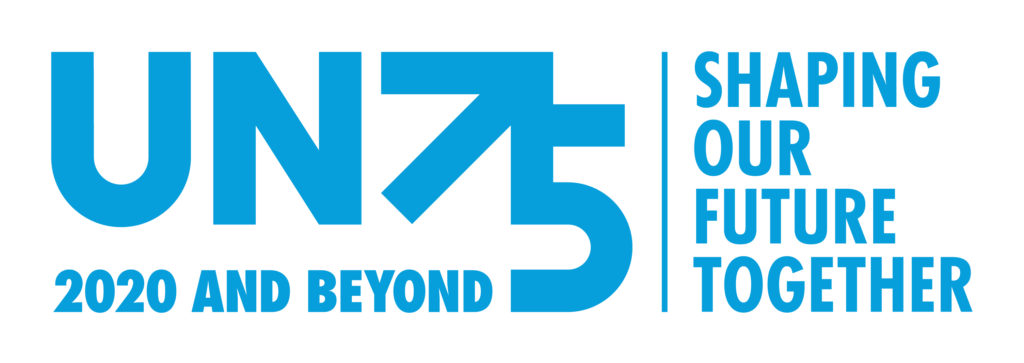This page will be updated with news and updates from CSEM members at the 75th session of the United Nations General Assembly (UNGA 75).

VIRTUAL DISCUSSION
UHC and COVID-19: Operationalizing Commitments to Leave no one Behind
Thurs, 17 September 2020
As the COVID-19 pandemic exposes and exacerbates existing inequalities in health, vulnerable, stigmatized and marginalized communities are at increasingly high risk. Not only are they particularly vulnerable to the pandemic but their already limited access to quality health services has been interrupted by the COVID-19 pandemic, resulting in other health responses falling behind. Identifying and analyzing health from the perspective of the last mile is vital to mitigating the spread and impacts – both primary and secondary – of pandemics. In this pandemic, it has never been clearer that human health is interconnected. Ensuring universal health coverage in the time of COVID-19 will promote better outcomes for all, because no one is safe until we are all safe.
This UNGA virtual side event discussed institutional commitments to UHC, particularly to reach last mile communities first in the COVID-19 response and recovery, by highlighting opportunities for implementing UHC, centering our shared commitments to leave no one behind.
See the recording here.
Introduction and opening remarks were delivered by Maurine Murenga (Founder and Executive Director, Lean on Me Foundation; TB Affected Community Delegation, Stop TB Partnership) and Dag-Inge Ulstein (Minister of Development, Norway). Jagan Chapagain (Secretary General, IFRC), Bernt Apeland (Secretary General, Norwegian Red Cross) and Dalal al-Taji (Head of Continued Education Department, Palestinian Red Crescent) discussed the criticality of strong health systems and ensuring universal health coverage to set the scene for the panel. Gerry Elsdon (humanitarian activist, television presenter, and TB survivor) moderated the discussion.
Dumiso Gatsha (Founder, Success Capital; Advisory Group Member, CSEM) discussed the impacts of COVID-19 on people living in extreme poverty and lessons for UHC to reach this population. Massimo Barra (Founder of Villa Maraini; Chair, Red Cross and Red Crescent Partnership on Substance Abuse) outlined how health services for people who use drugs have been interrupted due to the pandemic. Santosh Kumar (Secretary General and Executive Director, Kolkata Rista) explained the unmet needs of the Hijra community in India in access health care services, including for COVID-19, and gaps in the path toward UHC. Marta Royo (Executive Director, Profamilia) discussed the impact of COVID-19 on sexual health and reproductive health and rights for women and girls.
The final section of the panel discussed the inequities faced by people on the move in accessing COVID-19 services and other health care. Muhammed Badamasi (Nigerian Red Cross) focused his presentation on nomadic populations and those living in hard to reach settlements while Princess Hewana (Vereeniging Branch Manager, South Africa Red Cross) stressed the importance of ensuring undocumented persons are included and their needs addressed in the COVID-19 response. Jacqueline Weekers (Director of Migration Health, International Organization for Migration) spoke about the challenges of ensuring universal health coverage for migrants and the impact of the COVID-19 pandemic.
In the responses to audience questions, the panelists noted the importance of community leadership and engagement in designing policies and services that address their needs. The event was hosted by CSEM, the International Federation of Red Cross and Red Crescent Societies (IFRC), Norges Røde Kors and the Stop TB Partnership.
VIRTUAL DISCUSSION
COVID-19: Why Communities Should be the Focus to Reduce the Impact in Africa
Wed, 23 September 2020
Investments in community engagement is especially important for COVID-19 and other health emergencies that rely on trust and good information systems. Misinformation and stigma against health workers are hurting COVID-19 responses in many countries. A strong pandemic response also necessarily relies on a strong fundamental health care system. In order to minimize the health impact of COVID-19 and continue progress on UHC, governments must engage communities at all levels.
Speakers included Crystal Lander (Executive Director Global Affairs, Pathfinder International), Esther Njoroge-Muriithi (Vice President and Regional Director, Africa, Smile Train and CSEM Advisory Group), Dr. Keith Shongwe (Chairman Health Cover Pty Ltd), Ahmed Arale (Secretariat Director for CORE Polio & Global Health Security Project in the Horn of Africa), Ruth Ngechu (Deputy Country Director, Strategic Partnerships and Advocacy, Living Goods, Kenya), Dr. Ibrahim Yisa (Executive Director, Results, Performance and Learning, CHESTRAD Global), Eileen Mokaya (Senior Country Director, Kenya and Uganda, Pathfinder International), Dr. Olubunmi Ogbodu (Executive Director, Social Impact Programmes, CHESTRAD Global) and Marion Subah (Liberia Country Director, Last Mile Health). The panel was moderated by Desta Lakew (Global Director of Partnerships and External Affairs, Amref Health Africa).
The panelists discussed the shortcomings of civil society engagement in the COVID-19 response thus far and recommendations for more inclusive governance. Others highlighted best practices, including creating formalized engagement mechanisms at the national level (i.e. in Kenya) and how communities have played a pivotal role other health initiatives (i.e. polio eradication). The roles of community health workers and the need to provide them with the necessary tools and trainings were also highlighted. Governments must be able to build community trust by working with the people in order to deliver on health commitments.
See the recording here.
This event was hosted by CHESTRAD, CSEM, Communities at the Heart of UHC, Last Mile Health, Living Goods and Pathfinder International.
CSEM Advisory Group member Justin Koonin (President, ACON) spoke on behalf of civil society at the Launch of the 2020 Global Action Plan for Healthy Lives and Well-being for All progress report on 15 September 2020. Learn more

